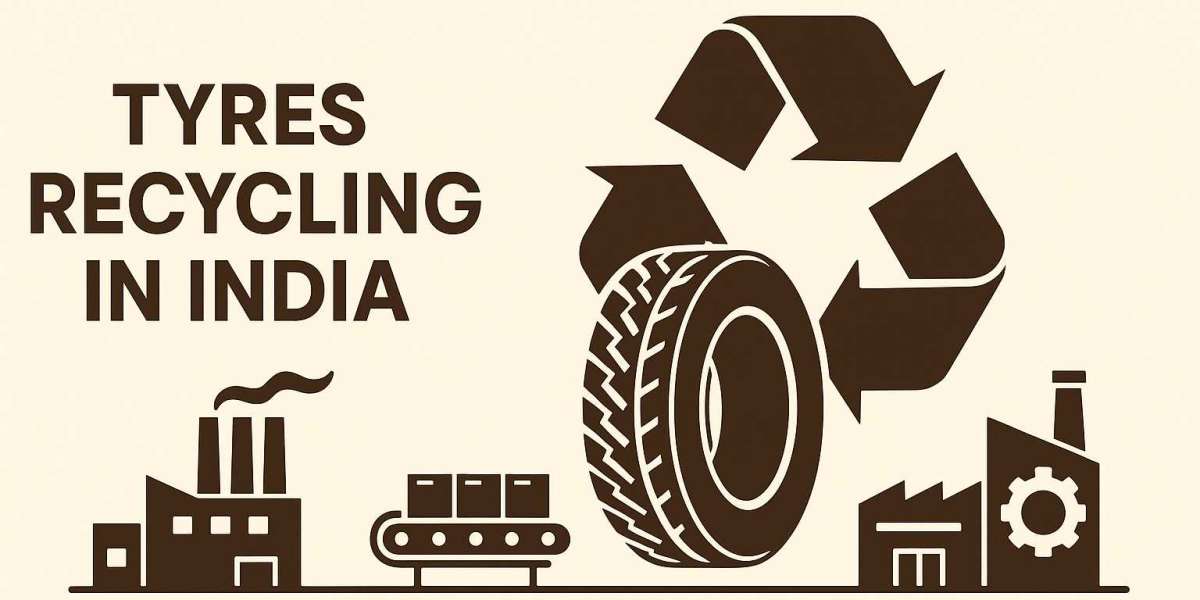India generates a staggering volume of used tyres every year, with millions of them discarded by vehicles across the country. These worn-out tyres, if left unmanaged, pose serious environmental threats taking up space in landfills, clogging drainage systems, and releasing harmful chemicals when burned. But where theres waste, theres opportunity. With growing awareness and government support for sustainable practices, setting up a tyres recycling plant in India has emerged as both a responsible and profitable venture.
A tyres recycling plant setup in India plays a crucial role in reducing waste and recovering valuable resources. Recycled tyre products like rubber granules, crumb rubber, reclaimed rubber, and tyre-derived fuel (TDF) are now in high demand across industries including construction, automotive, road development, and even sports infrastructure. These materials are used in manufacturing new tyres, rubber mats, playground surfaces, and more minimizing the need for virgin rubber and promoting circular economy practices.
To start a tyre recycling plant setup in India, a systematic approach is key. The process begins with assessing the business viability in your target region. This involves studying the availability of scrap tyres, local demand for recycled products, and the competition in the market. Once the feasibility is established, the next steps involve acquiring the necessary regulatory clearances. Environmental approvals from the State Pollution Control Board (SPCB), along with a consent to establish and operate, are mandatory under Indian environmental regulations.
Technology and machinery form the backbone of any successful tyre recycling operation. Depending on the desired output be it rubber crumb or reclaimed rubber youll need to invest in shredders, granulators, magnetic separators, and refining equipment. Advanced technologies not only improve efficiency but also ensure higher-quality end products that meet industry standards.
Choosing a strategic location is another vital step. The ideal site should be close to the sources of raw material (i.e., scrap tyres) and transportation hubs to distribute recycled goods easily. Your plant layout should also consider logistics, storage, and environmental safety.
Financing your plant setup can be done through a mix of personal investment, bank loans, and government schemes. Various initiatives under Indias sustainability and waste management policies offer financial support or subsidies for recycling ventures. Preparing a strong business plan with clear projections on cost, capacity, ROI, and sustainability practices will help in securing funding and partnerships.
But setting up a tyres recycling plant is not just about business potential its about long-term environmental impact. Every tonne of tyre waste you recycle keeps harmful pollutants out of landfills and incinerators. It also creates green jobs, supports local economies, and promotes eco-friendly industrial practices.
With Indias focus shifting towards sustainable development and the circular economy, this is the right time to invest in tyre recycling. As demand for recycled rubber grows across sectors, entrepreneurs who step into this space today can lead tomorrows green industry. A well-executed tyres recycling plant setup in India is more than a venture its a vision for a cleaner, more resource-efficient future.
 Meet Ups
Meet Ups
 Experiences
Experiences
 Learning Center
Learning Center
 Accommodation
Accommodation
 Roomie
Roomie
 Ride
Ride
 Spread the Word
Spread the Word
 Student Bazaar
Student Bazaar
 Jobs
Jobs
 Blogs
Blogs
 About StudentInsta
About StudentInsta

